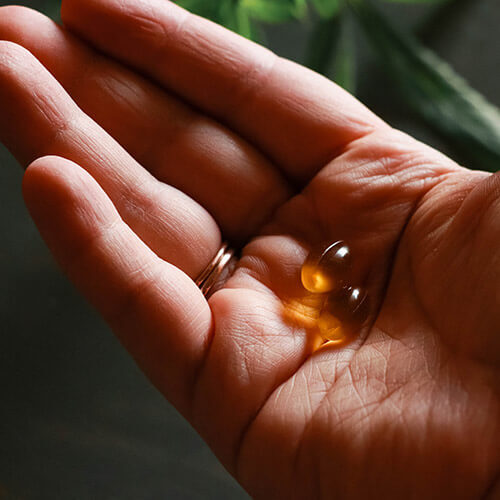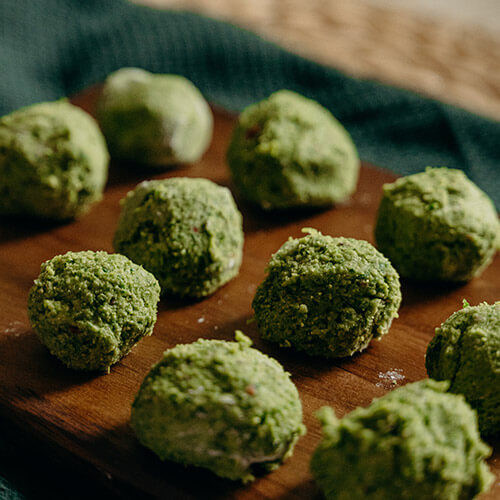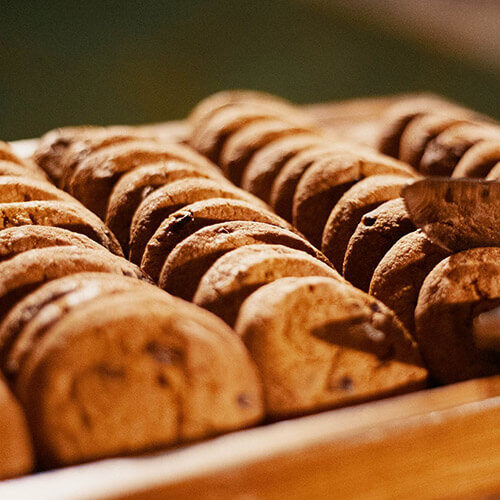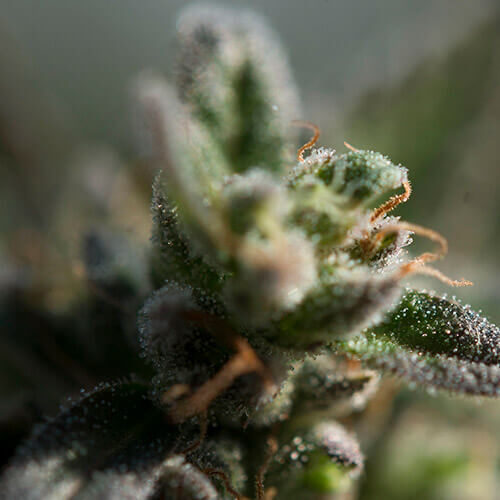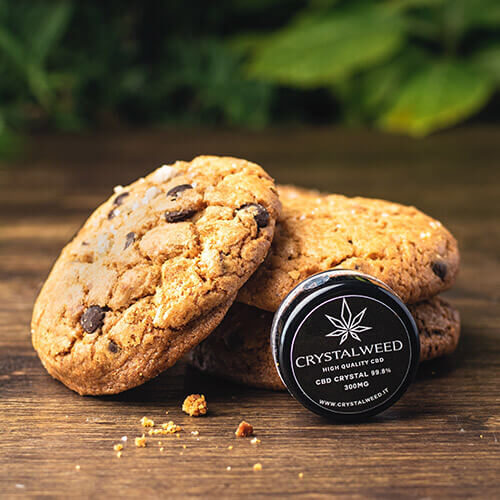(Hint: it’s not that black and white.)
Cannabis has an extensive list of benefits, and reducing anxiety is definitely one of them. However, it seems that there’s a 50/50 split in consensus on whether cannabis actually aids anxiety or increases it. Read on to learn why both may be true.
Not all cannabis is created Equal
Before we dive into the effects cannabis has on anxiety, it’s important to note that cannabis influences everyone differently, and can even affect the same person differently depending on the specific type or consumption method. There are thousands of cannabis strains that exist and with legalization sweeping the nation (yay!) genetics are being crossed to create even more flower varieties. Each strain has a unique chemotype: a blend of cannabinoids and terpenes which cause diverse flavors, scents, and physical effects.
CANNABINOIDS
THC
The most common cannabinoid is Delta-9-Tetrahydrocannabinol, also known as THC. If you’ve experienced cannabis induced anxiety it’s likely you consumed (too) high levels of THC. The intoxication felt by THC can increase emotional anxiety due to an increase in racing thoughts, but the effects are not only mental. THC can also elevate heart rate and blood pressure which contributes to feelings of anxiety.
THC alone does not cause stressful thoughts or feelings; the amount of THC plays a large role, as well as your state of mind when you consume THC. Micro-dosed levels of THC have actually been shown to help with certain types of anxiety by providing euphoric, uplifting feelings which can combat anxiety and depression. If you are in the midst of a panic attack, a high THC strain may exacerbate symptoms, while taking a small sublingual dose can help to prevent anxious thoughts from occurring and can even increase serotonin and dopamine, causing almost instant relief.
CBD
Cannabidiol, or CBD, is commonly referred to as non-psychoactive but that is not entirely true. CBD does in fact interact with our brain chemistry so a more accurate description is that CBD is non-intoxicating or non-psychotropic; it is not a mind altering substance. High amounts of CBD have muscle-relaxer like symptoms including relaxed muscles, drowsiness, heaviness, decreased inflammation and calming of the mind, to name a few.
The explosion of CBD products in the market has been positive for the mainstream acceptance of cannabis as medicine, but unfortunately it has created a good guy / bad guy dynamic within the cannabis space. People are fearful and avoidant of THC while diving into CBD without questioning product quality, dosing, or other important factors.
While CBD does have a plethora of benefits, it’s important to know where your products are coming from. Buying CBD on Amazon and feeling zero benefits, or on the contrary feeling uncomfortably affected does not mean that CBD won’t work for you. Some of the non-tested, grocery store CBD has recommended doses of upwards of 30mg; In the legal cannabis marketing we suggest starting with 2-5mg! You can see how consumers can get confused and turned-off by negative experiences.
As mentioned above, all cannabis is not created equal, and sometimes it’s the combination of THC and CBD that creates the ideal outcome, or simply finding a higher quality medicine with the specific compounds that work well with your body chemistry. We find anywhere from a 1:1 ratio to a 20:1 CBD:THC ration can be helpful to combat anxiety and a wide range of other ailments.
THC and CBD are two of hundreds of cannabinoids found in cannabis! THCa is another common, non-intoxicating cannabinoid that can reduce anxiety amongst other benefits. Begin reading labels or you can even request the testing results of cannabis products to see what other cannabinoids you’re ingesting. That way you can understand the effects and make connections to what combinations make you feel a certain way.
Pro-tip: If you are feeling “too high” and anxious, consuming CBD can actually decrease the unwelcome psychoactive effects of THC. We recommend always having a CBD tincture on hand for quick acting, sublingual relief.
TERPENES
Terpenes are naturally occurring compounds that contribute to the flavors and fragrances in plants or fruit, including cannabis. They are secreted by Trichomes, the glands on the cannabis leaves and flowers. Similar to cannabinoids, Terpenes interact with receptors and neurotransmitters and have the ability to increase serotonin, dopamine, and norepinephrine. They can help the body to experience pleasure and relaxation, as well as increase energy levels and focus.
You’ve most likely enjoyed the benefits of terpenes without realizing it. They are what give pine its fresh, earthy, awakening smell and explain why the flowery scent of lavender causes an instant, body melting sensation. They essentially explain the science behind aromatherapy.
Myrcene
Myrcene is a terpene abundant in ylang-ylang, basil, and lemongrass, as well as cannabis. It acts as a sedative that is also known for combating inflammation and anxiety. Common strains that contain high levels of Myrcene are GrandDaddy Purple, OG Kush, Grape Ape and Blue Dream. Myrcene is one of the most commonly found terpenes in cannabis so keep an eye out and do some research into what you’re consuming.
Linalool
Linalool is the terpene in lavender that is known for its stress and anxiety reducing effects. It’s typically found in lower percentages in cannabis, however Do-si-do and Zkittles are two well known strains that contain high levels of Linalool, so when choosing strains to combat anxiety these would be a good starting point.
Each strain has a combination of cannabinoids and terpenes. The benefits that happen when these are blended together are know as the Entourage Effect. This specific mixture of terpenes and THC/CBD can actually increase the affects of the cannabinoid even if the percentage is low. This is why us retailers cringe when customers balk at low THC levels, but that’s a story for another day!
Not All Anxiety Is Created Equal
We are currently surveying our customer base (take the survey here!) to do our own research on who is using cannabis in 2020 and why. The early findings have been fascinating with 78% of users stating they consume cannabis for relaxation. It is the top reason our client base is using cannabis, while 50% of users stated they use cannabis for combating anxiety, depression, or PTSD.
If you want to try cannabis to manage anxiety, here are a few tips:
Consume a measurable dose: try pre-dosed capsules, edibles or tinctures so you know exactly how many milligrams you are consuming.
Micro-dose: Start with 1-3mg and wait! Continue increasing in 1mg increments until you find your happy place. If you want to smoke, take one or two small hits and give it a few minutes to decide if you need more.
Be patient: you probably won’t find the right product on the first go, and that’s okay! Don’t let a negative experience deter you, remember almost 80% of our customers enjoy cannabis because it helps them relax!
Ask for help: cannabis is only one possible medicine to help reduce anxiety symptoms. Talking to a therapist is always the best solution for working through anxiety and getting to the root. Don’t be ashamed to speak out and seek guidance. Talk to a health professional to discuss your options.
The bottom line is this is a complex issue and there is not a one size fits all solution. Understanding both cannabinoids and terpenes and then applying that knowledge to your specific anxiety symptoms is crucial to finding the combination that works for you. It’s also extremely important to understand that self-medicating with cannabis can lead to dependency and may only provide short-term relief. We strongly encourage you to seek guidance from a mental health professional while you experiment with managing your anxiety.
Thanks for being a part of the Mission Cannabis Club community! We are passionate about helping patients find the right medicine for their needs, so please don’t be shy. Chat with our budtenders or request a one-on-one consultation to dive deeper into products that may be helpful for you.
Written by Alexa Jesse.


